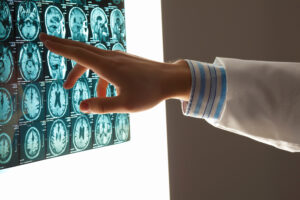When a family member sustains a brain injury, it can be a challenging and overwhelming experience for both the individual and their loved ones. In McPherson County, Kansas, navigating the complexities of brain injury care and support requires a comprehensive understanding of the available resources and requirements. The Melinda Young Law Firm is dedicated to providing guidance and legal assistance to families in these situations. In this article, we’ll explore how family members can support a loved one with a brain injury in McPherson County, while also shedding light on the essential requirements to ensure the best care and recovery possible.
Understanding Brain Injuries
A brain injury, whether traumatic or acquired, can have profound and lasting effects on an individual’s physical, cognitive, and emotional well-being. Family members play a crucial role in the recovery process, offering emotional support, assisting with daily tasks, and advocating for their loved one’s rights. It’s important to educate yourself about the various types of brain injuries and their potential impact, as well as the available medical treatments and therapies.
Seeking Medical Attention
Prompt and appropriate medical care is of utmost importance when dealing with a brain injury. As a family member, your role begins by ensuring your loved one receives the necessary medical attention as soon as possible. This may involve calling emergency services, visiting the nearest medical facility, or coordinating with medical professionals to initiate a treatment plan. Regular follow-up appointments, medication management, and therapy sessions are essential components of the recovery process.
Navigating Rehabilitation
Rehabilitation plays a vital role in helping individuals with brain injuries regain lost skills and achieve the highest level of independence possible. McPherson County offers various rehabilitation centers and services tailored to the needs of brain injury patients. As a family member, you can actively participate in the rehabilitation process by attending therapy sessions, providing encouragement, and facilitating communication between your loved one and their healthcare team.
Emotional Support and Communication
The emotional well-being of a brain injury survivor greatly depends on the support they receive from their family members. Open and empathetic communication is key to understanding their needs, fears, and aspirations. Keep in mind that the recovery journey might involve frustration and emotional challenges. Being patient and offering a listening ear can make a significant difference in your loved one’s healing process.
Legal and Financial Considerations
Brain injuries often lead to unexpected medical expenses, ongoing care costs, and potential changes in the individual’s ability to work. Navigating the legal and financial aspects can be complex, which is where the Melinda Young Law Firm can provide invaluable assistance. Their expertise in personal injury law can help you understand your rights and options, ensuring your loved one receives the compensation they deserve.
Understanding Requirements in McPherson County, Kansas
McPherson County, Kansas, offers a range of resources and services for individuals with brain injuries and their families. To provide the best possible care and support, it’s important to be aware of the following requirements:
- Medical Documentation: Keep thorough records of medical diagnoses, treatment plans, and progress reports. These documents are essential for accessing appropriate services and seeking legal recourse if necessary.
- Insurance Coverage: Familiarize yourself with your loved one’s health insurance policy, including coverage for medical treatments, therapies, and medications related to their brain injury.
- Government Assistance: Research and apply for government assistance programs that might be available to support individuals with brain injuries. These programs can provide financial aid and access to specialized services.
- Educational Support: If the brain injury survivor is of school-going age, explore educational accommodations and support services provided by schools in McPherson County.
- Employment and Vocational Services: For individuals able to work, investigate vocational rehabilitation programs that can help them re-enter the workforce and regain financial independence.
- Support Groups: Connect with local support groups and organizations dedicated to brain injury survivors and their families. These groups offer a valuable platform for sharing experiences and learning from others facing similar challenges.
Navigating Daily Life and Creating a Supportive Environment
Beyond the legal and medical aspects, creating a supportive environment at home is crucial for your loved one’s recovery and well-being. Here are some practical tips to consider:
- Safety First: Brain injuries can affect an individual’s balance, coordination, and judgment. Ensure that your home is free from hazards and obstacles that could lead to accidents. Install handrails, non-slip surfaces, and appropriate lighting to minimize the risk of falls.
- Structured Routine: Establishing a structured daily routine can provide a sense of stability and predictability for your loved one. Consistency can help them regain a sense of normalcy and control over their life.
- Assistive Devices: Depending on the severity of the brain injury, your loved one might benefit from using assistive devices such as mobility aids, communication tools, or adaptive technology. Consult with healthcare professionals to determine the most suitable options.
- Healthy Lifestyle: Encourage a healthy lifestyle by providing nutritious meals, promoting regular exercise as recommended by medical professionals, and ensuring adequate sleep. A balanced diet and physical activity can contribute to both physical and cognitive recovery.
- Encourage Independence: While it’s important to provide support, also encourage your loved one to engage in tasks and activities that align with their abilities. Gradually increasing independence can boost their self-confidence and motivation.
- Patience and Flexibility: Understand that progress in recovering from a brain injury can be slow and nonlinear. Be patient and adaptable to changes in your loved one’s needs and capabilities.
- Social Engagement: Maintaining social connections is essential for emotional well-being. Encourage visits from friends and family members, engage in activities your loved one enjoys, and consider connecting with local support groups.
- Monitor Mental Health: Brain injuries can impact mental health. Keep an eye out for signs of depression, anxiety, or mood changes. Seek professional help if needed to address any emotional challenges.
Supporting a loved one with a brain injury in McPherson County, Kansas, demands a comprehensive approach that encompasses medical care, rehabilitation, emotional support, and legal considerations. As a family member, you play a vital role in ensuring the best possible outcome for your loved one’s recovery. By staying informed about available resources, requirements, and legal avenues, you can navigate the challenges more effectively.
Melinda Young is here to guide you through the legal aspects of brain injury cases, ensuring your loved one’s rights are protected and they receive the compensation they deserve. Contact us today to learn more about how we can assist you during this challenging time.
If you or loved one are dealing with a brain injury in McPherson County, Kansas, don’t hesitate to reach out to Melinda Young. Our experienced team is dedicated to helping families navigate the legal complexities and secure the compensation needed for a successful recovery. Contact us today for a consultation and let us support you on this journey toward healing and justice.
